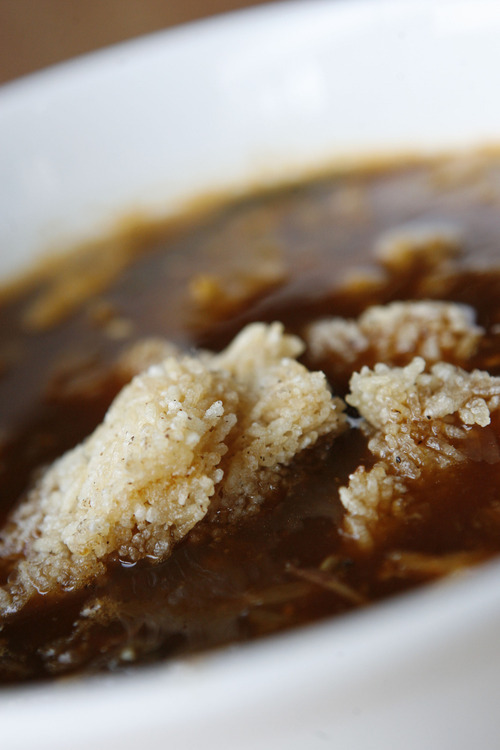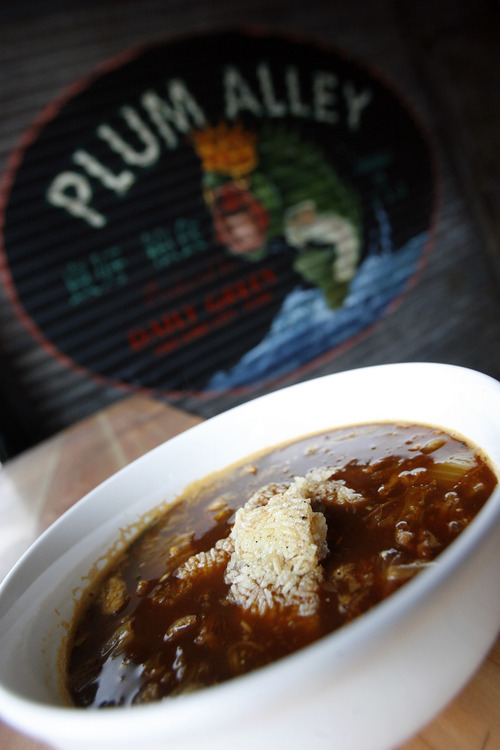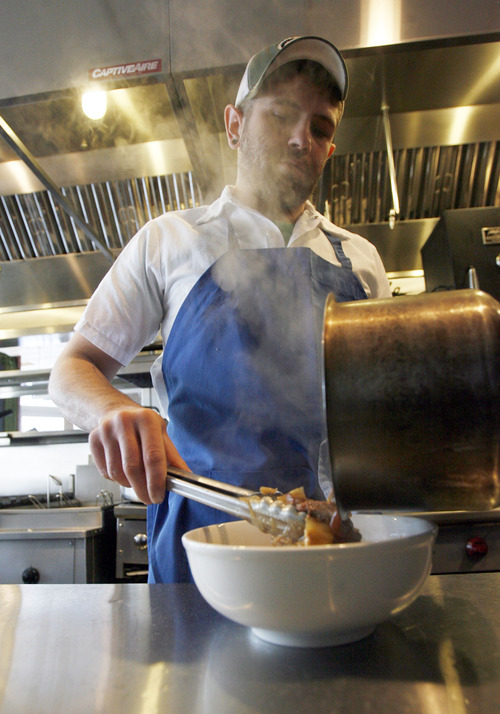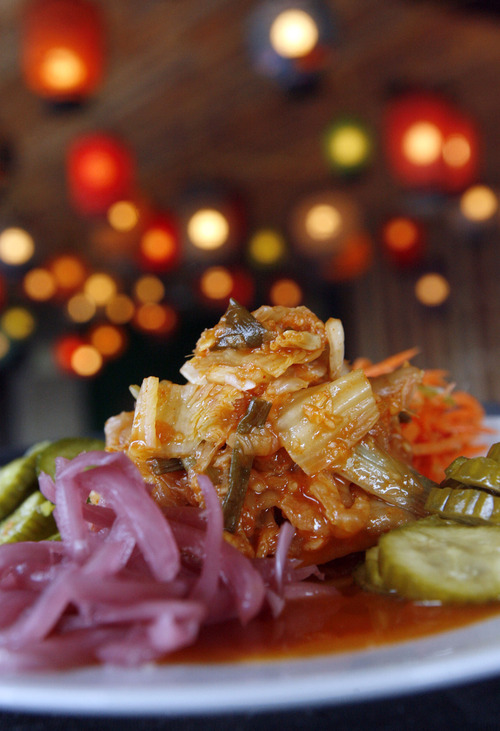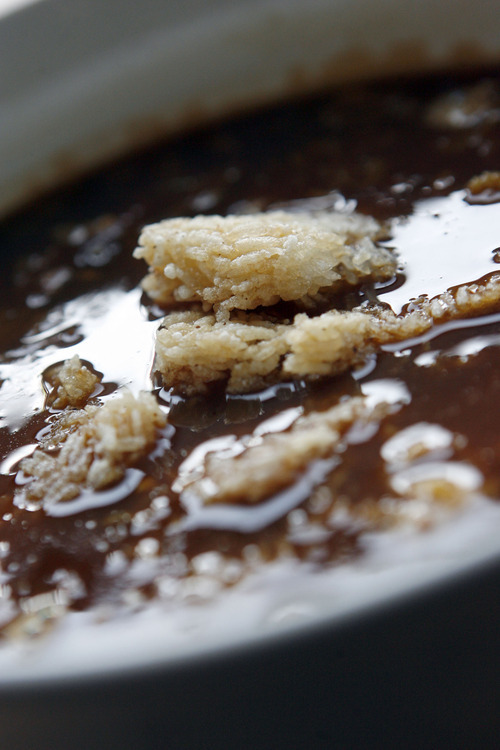This is an archived article that was published on sltrib.com in 2012, and information in the article may be outdated. It is provided only for personal research purposes and may not be reprinted.
As a food craze, kimchi has several strikes against it.
First, the name. Kimchi — or kimchee or gimchee — sounds like a fearsome martial art or the nickname of one of Tarzan's sidekicks.
Second, with the middle-American cultural squeamishness about unfamiliar food, a dish that involves cabbage — probably the planet's least sexy vegetable — fermented in the ultimate low-tech way with garlic, ginger, chili sauce and onions pushes all the xenophobic buttons.
Third, and this is a killer, kimchi is, beyond a doubt, very, very good for you.
Kimchi provies about half the daily requirement for vitamin C, along with B1, B2, calcium and iron, a megadose of dietary fiber and the long list of health benefits found in raw garlic. As a fermented food, it is loaded with probiotics. These "good bacteria," also found in yogurt, keep your digestive machinery running optimally and fight off infections from bad bacteria.
In short, promoters of this ancient food — part of virtually every Korean meal — probably should set their sales expectations low, certainly somewhere south of the McRib sandwich.
"Let's face it, this is a culture that likes beige and bland food," says Utah food writer and former Salt Lake Tribune restaurant critic Vanessa Chang, who makes her own kimchi. "My family has kimchi at every meal. We may have other traditional dishes, but there's always kimchi."
Salt Lake City's food scene is in for a healthy jolt. Korean food is a hot ethnic dining trend on the west and east coasts and is seeping into mainstream restaurants in Utah.
Chef Ryan Lamon at the newly opened Plum Alley restaurant in downtown Salt Lake City has made the Korean dish a centerpiece of his Asian-influenced menu.
"I have a deep-seated love for pickled food in general," Lamon says. "I learned how to make my own kimchi by trial and error. I developed my recipe from some ideas I got from a Korean co-worker in New York. He loved to hit Korea Town after work for the late-night bar scene, and kimchi was a part of that."
Right now, Plum Alley offers kimchi in a pork stew, but Lamon has plans for other dishes.
Although kimchi's health benefits were a secondary consideration in putting it on the menu, Plum Alley's owner, Ryan Lowder, allows that with its steam vapors and ginger, it is the ultimate comfort food. "Kimchi stew would be great for a hangover," he said.
Health magazine put it on its list of top five "World's Healthiest Foods." A study by Seoul National University claimed that chickens infected with avian flu recovered after being put on a diet of kimchi. And many Koreans, including Chang's father, hold that kimchi provided protection during the SARS epidemic in 2003. As with all such health-food claims, user mileage may vary.
Ian Brandt, owner of Cali's Natural Foods and the Vertical Diner, is serving kimchi at his new Cafe SuperNatural in Trolley Square as a side dish and as part of a salad.
"A culinary revolution is coming [to Utah]," Brandt says, in reference to "exotic" and healthy foods like kimchi. "People in Salt Lake City get these culinary trends from outside and we embrace them."
At It's Tofu in Cottonwood Heights, as at most Korean-owned restaurants, kimchi is a necessary part of the menu. It's Tofu's recipe is made by the family's aunt, Ellisa Kim, and is served in stews, pancakes, wraps, sides and even tacos.
"Most of our guests aren't Korean," says Connie Lee at It's Tofu. "Lots of [LDS] mission people who have been to Korea come in." The restaurant also sells kimchi in jars to go.
The best kimchi, of course, is homemade. And it's something that more Americans are experimenting with. The ingredients vary regionally in Korea, and every family hands down its own recipes. The most basic recipes call for Chinese or Napa cabbage, garlic, ginger, chili paste, green onions, daikon radishes and salt — fermented in a jug for at least a couple of days.
Chang makes a case that, if nothing else, kimchi may find a home in Utah as part of the outdoor-cooking culture.
"It's an ideal meat companion. It goes with every kind of meat and seafood," she says. "My favorite camping meal is kimchi on hot dogs."


